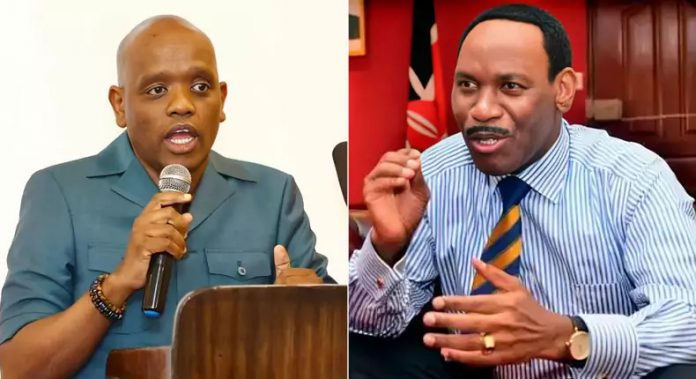Digital strategist, Dennis Itumbi has joined the debate calling for government intervention to reform the collection and distribution process of royalties, aiming to alleviate the burden of high administrative costs at the Music Copyright Society of Kenya (MCSK).
Expressing his concerns on Twitter, Itumbi directed sharp criticism towards the MCSK CEO, Dr Ezekiel Mutua.
He highlighted the vast contrast between the meagre royalties paid to musicians and the substantial earnings of collectors. Itumbi questioned the sustainability of this model while advocating for greater empowerment of artists.
“Dear Ezekiel Mutua, that is, we are paying musicians peanuts as royalties and paying the collectors millions. and you find nothing wrong with that model? Musicians = PEANUTS/ Per Year. CMOS CEO = 1.3M Per month. This is wide! Let us empower our artists, on that, like Paul in Scripture, My Eyes are firmly on the finishing line!” said Itumbi.
In response, Mutua defended the autonomy of collective management organisations (CMOs) like MCSK, asserting that government interference would undermine their independence.
He emphasised the importance of services like Skiza Tunes and streaming platforms in generating revenue for artists, cautioning against conflating licensing with administrative control.
“The government has no business interfering in the operations of CMOs. They are governed by their articles of association and bylaws. And by the way, we are all for accountability. We are all for technology. We are just against government interference in private property,” said Mutua.
Itumbi countered by proposing a digital overhaul of the current system, advocating for a government-led initiative to create a transparent digital platform for managing royalties.
He stressed the need for artists to receive their rightful compensation promptly and without intermediaries, highlighting the potential of digital platforms to streamline processes and minimize fraud.
While acknowledging the benefits of digital platforms, Mutua reiterated concerns about government interference and the risk of cartel influence, adding that there is a need to safeguard private entities from external manipulation.
Itumbi remained resolute in his stance, emphasising the benefits of a digital system in enhancing transparency and empowering artists. He reassured stakeholders of his commitment to resolving the issue in favour of artists, promising a transformative change in the management of royalties.











